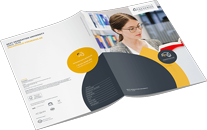Intercultural Theology, Master of Arts
On-campus program @ Hermannsburg University of Applied Sciences for Intercultural Theology
At a Glance
| University | Hermannsburg University of Applied Sciences for Intercultural Theology, UAS based in Hermannsburg |
|---|---|
| Field of Study | Humanities |
| Degree | Master of Arts (M.A.) |
| Duration | 4 Semesters |
| Language of Instruction | English |
| Location | Göttingen |
| Enrollment | Winter semester |
| More Info | View Vendor Profile |

 DE
DE  This provider offers free info materials to download or send. Would you like to be redirected to the provider's website? There you will find much more information about the course.
This provider offers free info materials to download or send. Would you like to be redirected to the provider's website? There you will find much more information about the course.
Advisory Service
Have questions about Academic Programs Intercultural Theology? Ask your question here, even anonymously. An employee of the institution Hermannsburg University of Applied Sciences for Intercultural Theology or the editorial team will answer you.
or post as a guest